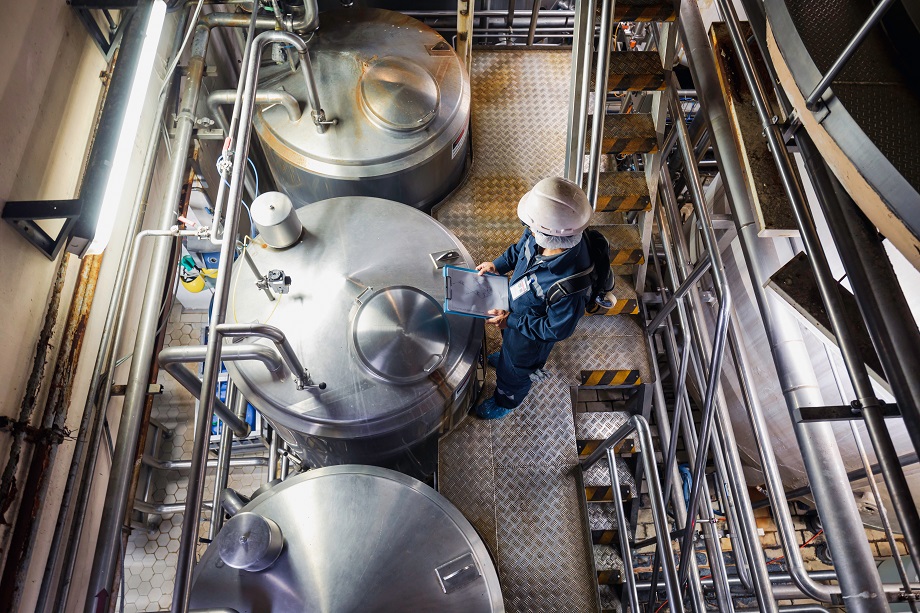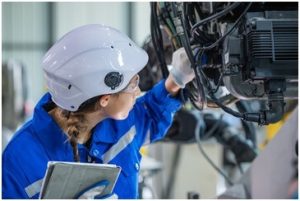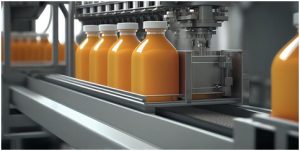
Today’s processing industries are not your grandfather’s way of manufacturing and processing products. The strategies and techniques used to enhance efficiency, reduce waste, and maximize output would be unrecognizable to him. Optimizing Industrial Processes is necessary because of consumer and commercial demand and global competition.
Although some production, assembly, and packaging are carried out manually, automation accounts for much of the work. Artificial intelligence, machine learning, and robotics enhance manufacturing and processing to an increasing degree. A process technician needs a college degree to comprehend these advanced methods and boost their company’s production.
Why Process Technicians (P-Techs) Are Important
Process technicians play vital roles in manufacturing and processing facilities. They work with teams of engineers, plant operators, and managers to master many activities, including:
- Operate, maintain, and troubleshoot processing equipment
- Design, install, commission, and optimize old and new processes
- Develop process improvements and request new equipment
- Monitor computers, devices, equipment, and systems
- Monitor processing variables such as pressure, temperature, and flow
- Practice safety measures to protect workers
P-techs apply their knowledge of and skills in electronics, instrumentation, and environmental practices to optimize operations. Part of their work week is spent checking compressors, turbines, fluid and chemical dynamics, and coordinating activities with other technicians.
Process technicians work in many industries including water and waste-water treatment, manufacturing, chemical, oil, gas, and food industries. Their work cannot be underestimated in the quality and output of products and services we all enjoy.
Optimizing Industrial Processes By Enhancing Efficiency
 Industrial efficiency is defined as the ability of a manufacturer to produce a product at as low a cost as possible while maintaining quality and making a profit. Process technicians know that larger units of production have cost advantages over smaller units.
Industrial efficiency is defined as the ability of a manufacturer to produce a product at as low a cost as possible while maintaining quality and making a profit. Process technicians know that larger units of production have cost advantages over smaller units.
We can also think of efficiency as the ability to achieve production goals with little to no waste, less human effort, and less energy expended. P-techs can achieve these goals by using resources in the best possible way, including:
- Invest in the best automation equipment
- Commit to regular equipment maintenance
- Improve training for all employees
- Optimize resources – quality and lower cost
- Upgrade electrical components and devices
- Make a plan for equipment failures
In summary, it all begins with evaluating the production lines followed by identifying production bottlenecks and finding and eliminating waste.
| “Advancements are necessary because of consumer and commercial demand and global competition.” |
Waste Reduction Is Essential
Process technicians help locate and control waste in several forms. It may be ineffective or wasteful purchasing, faulty processing, too much reworking of parts, or inadequate employee training. Waste reduction is essential because a company loses money and time dealing with it. Surveys show the best industrial practices for reducing waste are:
- Set waste management goals and perform a waste audit
- Minimize overstocking of raw materials and parts
- Minimize overproduction and stay on top of inventory
- Optimize shop floor practices by training employees better
- Establish a more comprehensive preventative maintenance schedule
- Streamline assembly processes and improve packaging
Process technicians, plant operators, and engineers who follow these practices immediately realize less waste and improved efficiency.
Optimizing Industrial Processes By Maximizing Output
 Besides enhancing efficiency and reducing waste, process technicians are charged with the responsibility of maximizing processes and production output. Process optimization means focusing on making the finished product more efficient in its creation stages. Product optimization entails engaging in activities designed to increase productivity, meaning more output of a product.
Besides enhancing efficiency and reducing waste, process technicians are charged with the responsibility of maximizing processes and production output. Process optimization means focusing on making the finished product more efficient in its creation stages. Product optimization entails engaging in activities designed to increase productivity, meaning more output of a product.
It is essential to improve process techniques to optimize manufacturing. Companies that follow the best practices use these techniques and methods to optimize their systems:
| Process Optimization | Product Optimization |
|
|
|
|
|
|
|
|
|
|
|
|
|
Become Involved In Optimizing Industrial Processes With An Associate Degree
If your career plans include working in process technology in one or more industries, consider obtaining an associate degree. Anyone living in the Greater Baton Rouge area has an excellent opportunity for P-Tech training.
ITI Technical College offers an Associate of Occupational Studies (AOS) Degree in Process Technology. Our faculty, staff, and administration dedicate their efforts to helping students become successful college graduates. Find out what we have to offer and meet with one of our admissions representatives soon or contact us today for more information.
For more information about graduation rates, the median debt of students who completed the program, and other important information, please visit our website: https://www.iticollege.edu/disclosures

